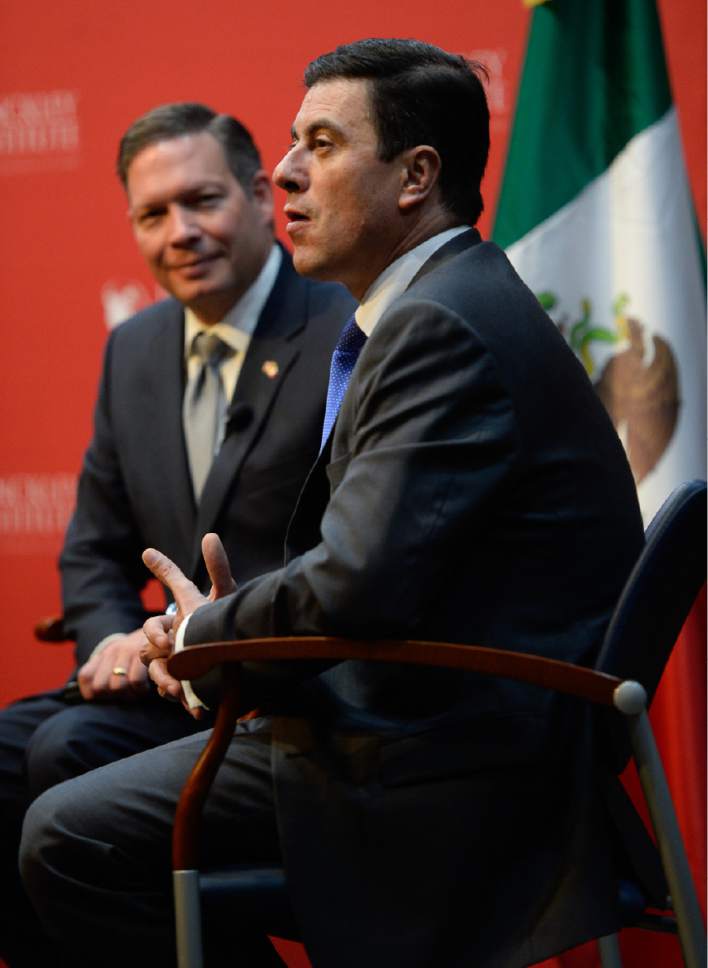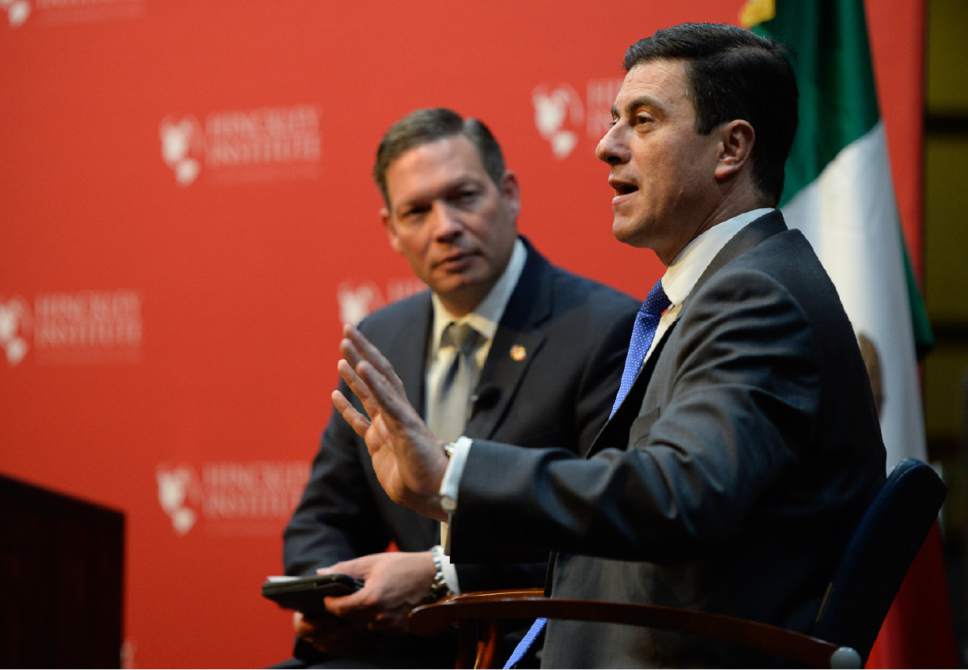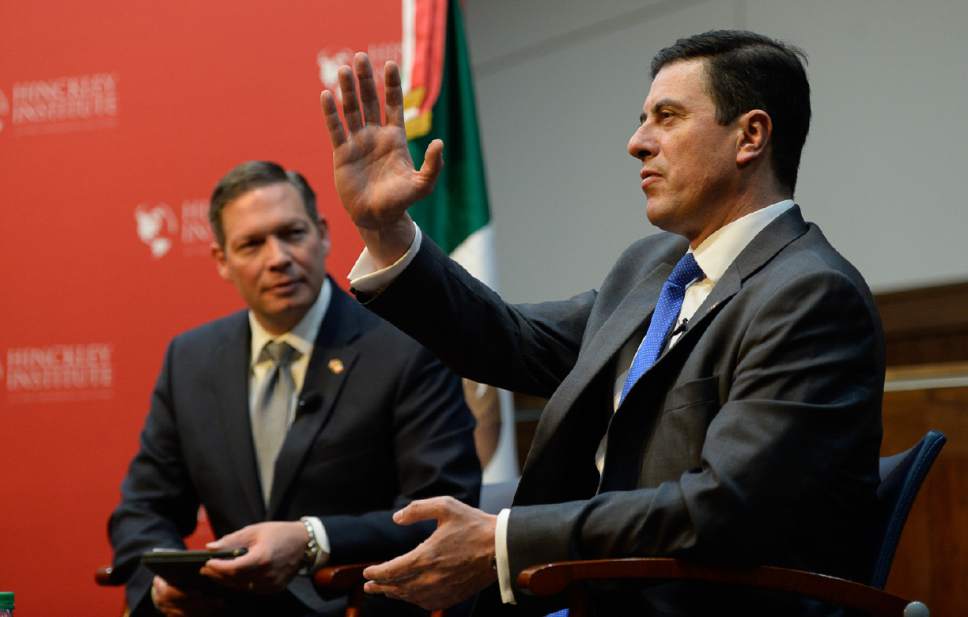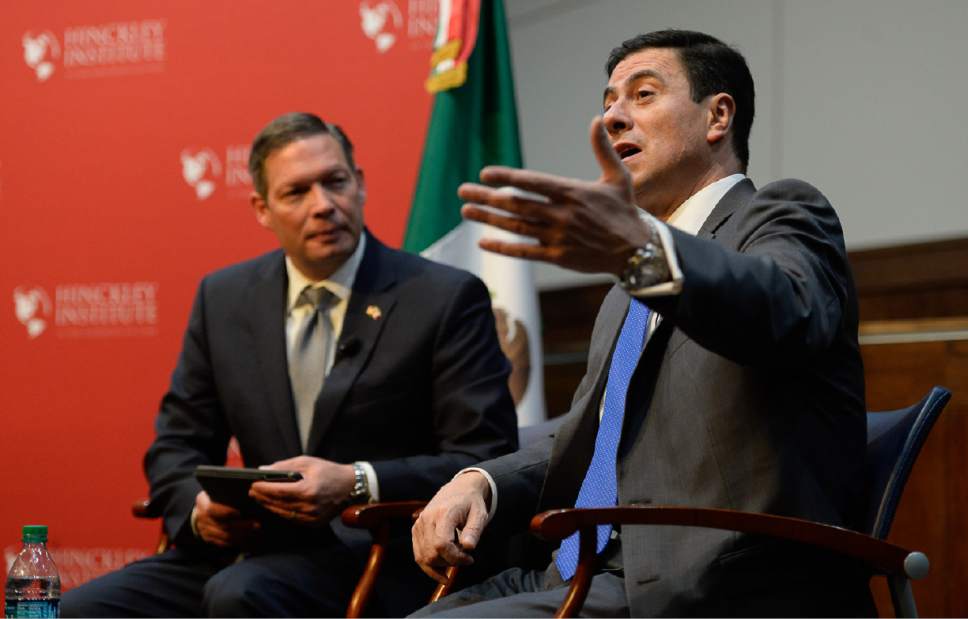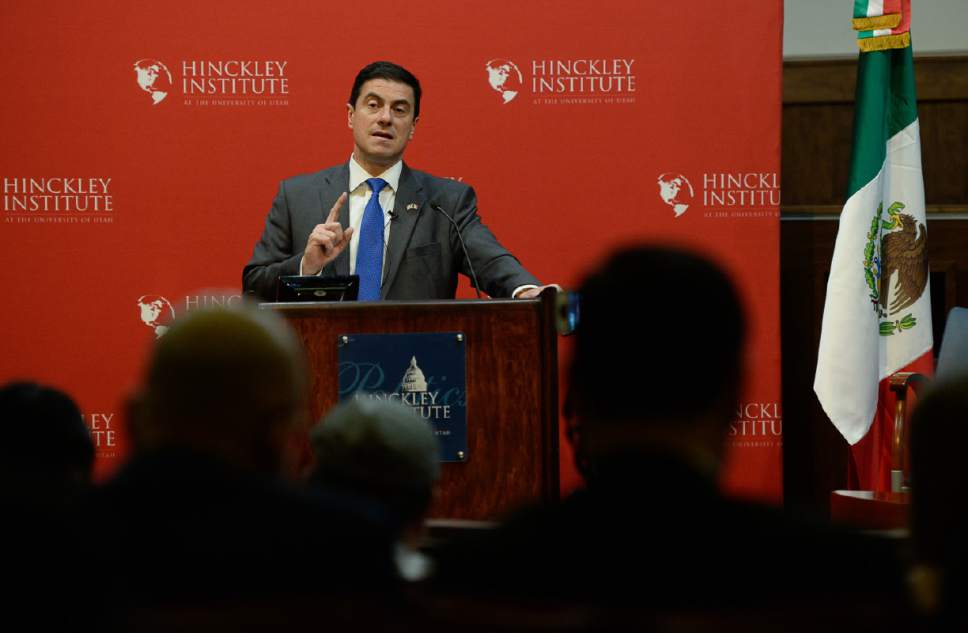This is an archived article that was published on sltrib.com in 2017, and information in the article may be outdated. It is provided only for personal research purposes and may not be reprinted.
Though the Mexican ambassador believes his country and the U.S. will work out their differences, he is concerned with anti-Mexican sentiment in the United States and distrust of the U.S. from his own people.
Geronimo Gutierrez told University of Utah students Wednesday that when he was confirmed to his position earlier this year, he told reporters that the United States and Mexico were at "a critical point," which he expounded on Wednesday.
"Unless action is taken, the status quo will be fundamentally different," he said. Over the past 25 years, the neighboring countries have made progress with their relationship by communicating more frequently, working together to solve problems and forming a partnership through the North American Free Trade Agreement.
He was in Utah for the first time in more than a decade to visit the Mexican Consulate in Salt Lake City, he said at a news conference later in the day. His purpose in visiting was to make clear the Mexican government's position, interact with the Mexican community here and strengthen the economic relationship between the U.S. and Mexico.
During his visit, he met with students who are permitted to stay in the country legally through Deferred Action for Childhood Arrivals (DACA), and with Gov. Gary Herbert as part of his Energy Development Summit.
It is in both countries' best interest that the other be "strong and successful," the ambassador said, but misconceptions and recent disagreements — including U.S. President Donald Trump's initiative to build a wall funded by Mexico to divide the countries at the border — have challenged the friendly ties.
Sentiments that create distrust between the two countries should be avoided, he said.
"Words matter," Gutierrez added, "and we have to be careful how we talk about each other because that has a direct impact" on national relations.
In light of the strained relationship between governments, Mexican President Enrique Pena Nieto has designated additional funding for consulates in the United States, allowing them to expand programming, education and protection for the people they serve, Gutierrez said.
Despite the tension, Gutierrez said the Mexican government has had some "very productive contact" with the Trump administration in the past few months that have helped each nation identify the other's limits and objectives.
"I'm being optimistic," he said, "but I think that we will be able to find common ground with this administration."
Gutierrez spoke about the need for immigration reform between the U.S. and Mexico. Many Mexican nationals come to the United States illegally because the immigration system is difficult to navigate.
"I don't think either one of the sides can feel satisfied in the way we are managing the migration problem," he said, adding that "the Mexican government does not advocate for any one of its citizens who break the law of any one country," though it does work to ensure their rights are respected and they have the benefit of due process.
"The idea of deporting someone that has been living [in the U.S.] perhaps 12 or 15 years, that has a dog, a house, a mortgage, a car and two kids who are U.S. citizens deserves a little bit of reflection," he said, responding to a student's question about his ideas of immigration reform.
The situation Gutierrez described has occurred with increasing frequency throughout Utah in recent months.
On Friday, a 31-year-old Mexican national who was brought to the U.S. at age 7 was detained by U.S. Immigration and Customs Enforcement in the parking lot of a Utah retail shop in front of her 8-year-old daughter. Protesters rallied Wednesday morning in support of the woman with her family in front of the West Valley City ICE Field Office.
Gutierrez said a new and reformed immigration system should address the questions of how to manage mobility between the nations in the future and what to do with people who are already in the country illegally.
He hopes to establish a "legal," "safe" and "humane" way for people to migrate between the neighboring countries, which he said would provide a "great competitive advantage."
Gutierrez said he wants the Mexicans of Utah to know that their government is aware of them, that it is fighting for their rights and that it is doing everything it can to improve their quality of life.
Twitter: @mnoblenews


